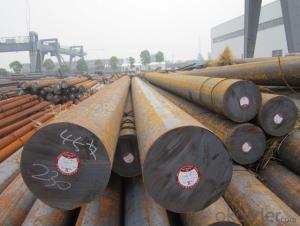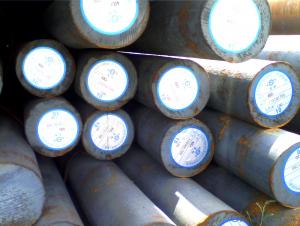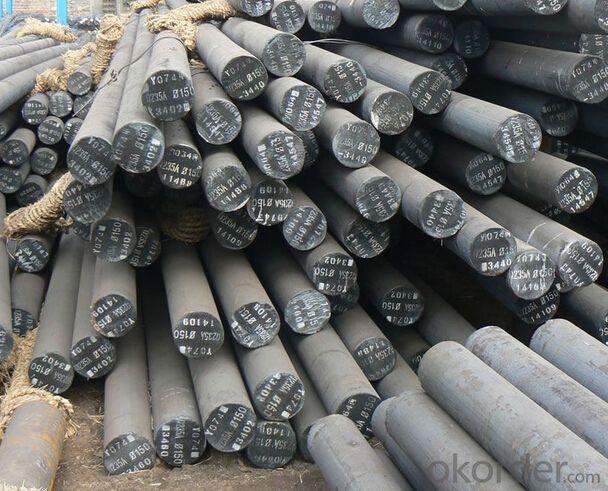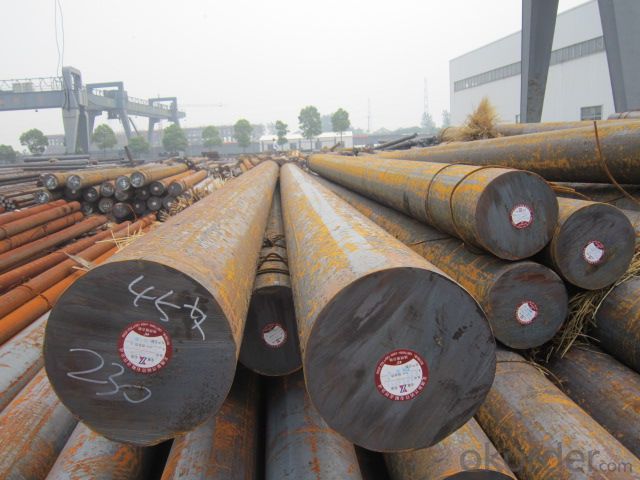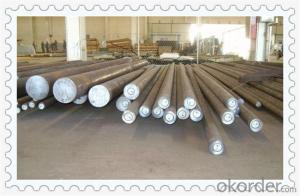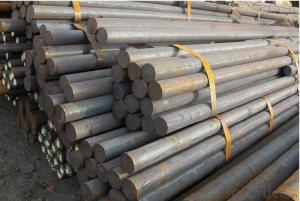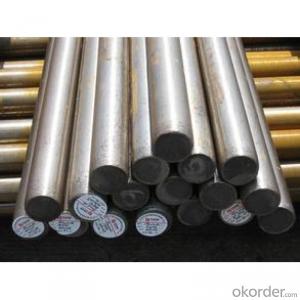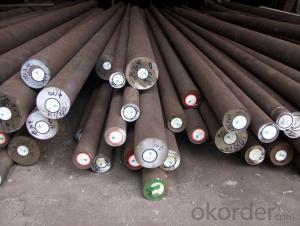Tool Steel Bar 5140 Alloy Steel Round Bar
- Loading Port:
- China main port
- Payment Terms:
- TT OR LC
- Min Order Qty:
- 30 m.t.
- Supply Capability:
- 10000 m.t./month
OKorder Service Pledge
OKorder Financial Service
You Might Also Like
Specification
Tool Steel Bar 5140 Alloy Steel Round Bar
Product information:
| Tensile Strength (N/mm2Mpa) | ≥980 |
| Elongation ( % ) | ≥9 |
| Yield strength | ≥785 |
| Hardness( HBS ) | ≤20 |
| Reduction of area | ≥45% |
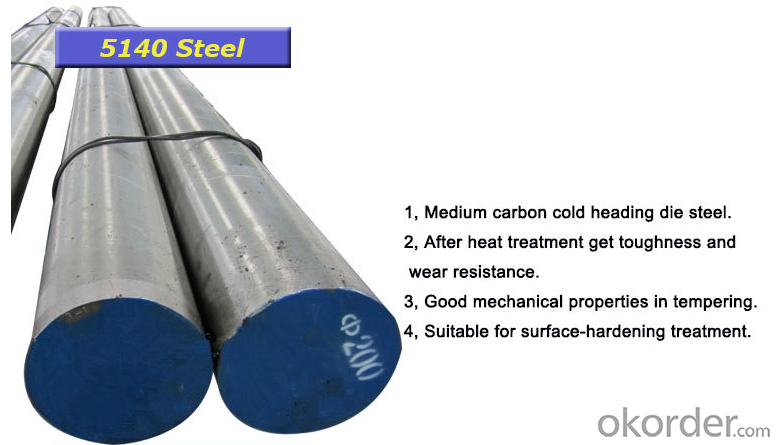
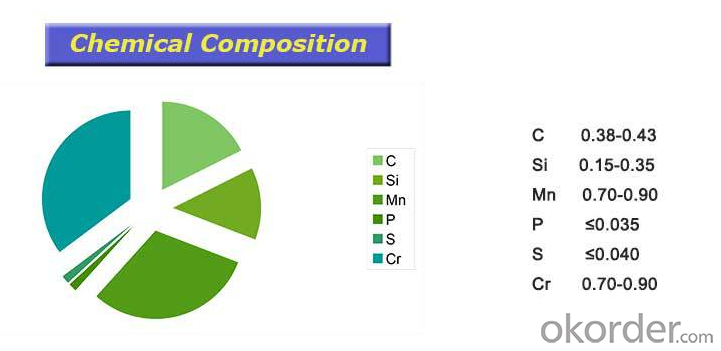
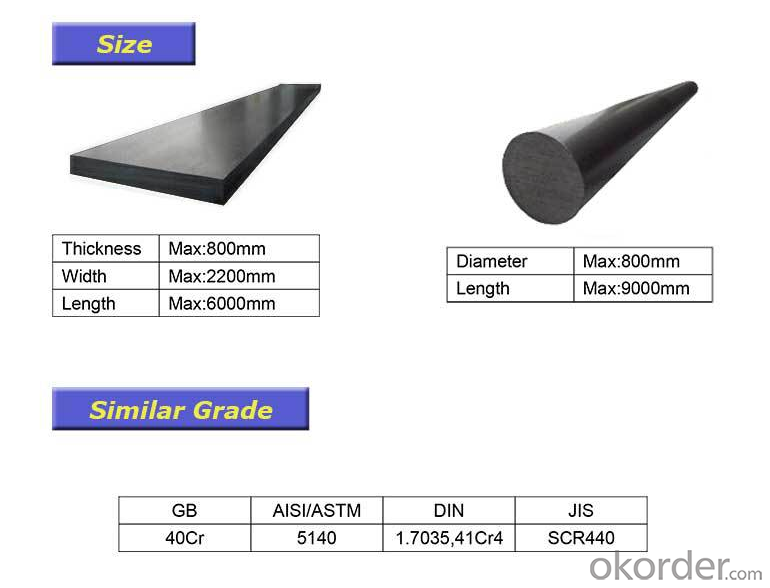
Other product show:
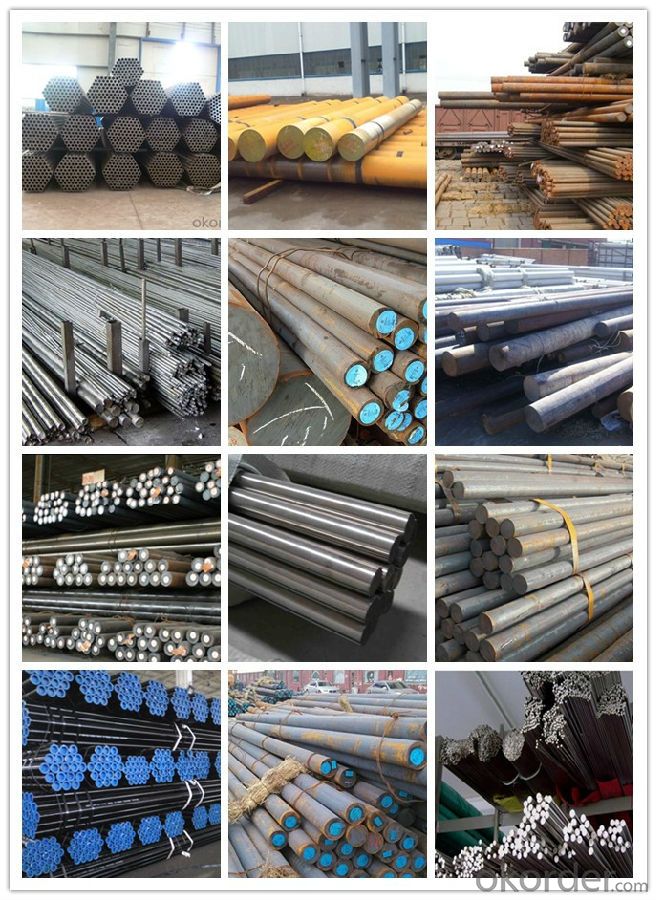
Our workshop show:
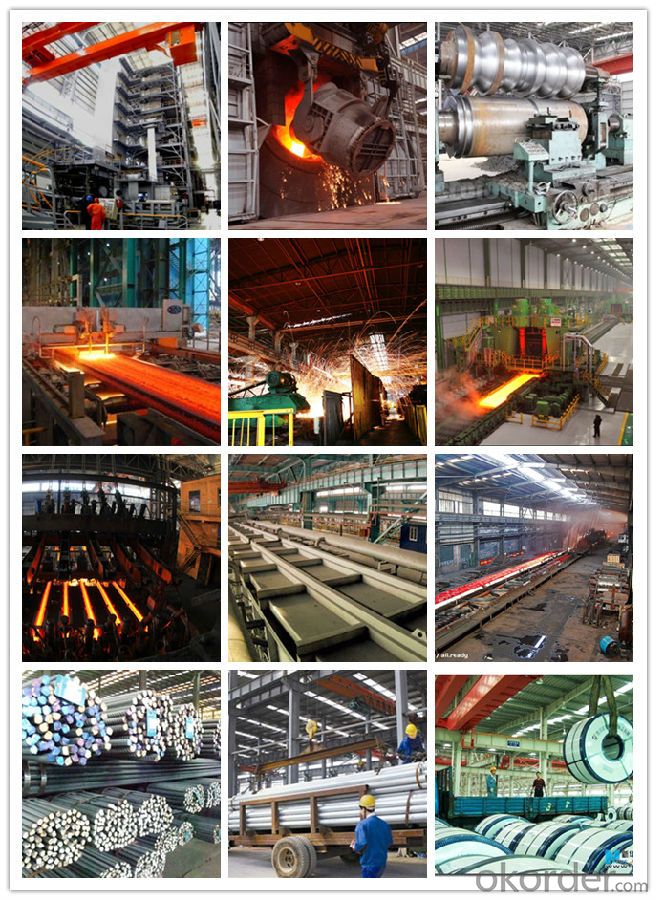
Our service:
-High manufacturing accuracy
-High strength
-Small inertia resistance
-Strong heat dissipation ability
-Good visual effect
-Reasonable price
Chose happens because of quality, then price, We can give you both.Additionally, we can also offer professional products inquiry, products knowledge train(for agents), smooth goods delivery, exellent customer solution proposals.Our service formula: good quality+good price+good service=customer's trust
SGS test is available, customer inspection before shipping is welcome, third party inspection is no problem.
If you need the sample, please feel free to let me know. Any question, we will contact you ASAP!
- Q: Can special steel be used in the glass manufacturing industry?
- Yes, special steel can be used in the glass manufacturing industry. It is commonly used for the construction of glass melting furnaces, molds, and other equipment that require high heat resistance and mechanical strength.
- Q: What are the future trends in special steel manufacturing?
- Some of the future trends in special steel manufacturing include advancements in technology and automation, increased focus on sustainability and environmental impact, development of new alloys and materials with enhanced properties, and growing demand for specialized steels in industries like aerospace, automotive, and renewable energy. Additionally, there is a shift towards customization and tailored solutions to meet specific customer requirements, as well as an emphasis on research and development to drive innovation in the field.
- Q: What are the properties of high-temperature alloy steel?
- High-temperature alloy steel possesses properties such as excellent heat resistance, high strength, good oxidation and corrosion resistance, and the ability to maintain mechanical properties at elevated temperatures. It is also known for its resistance to thermal fatigue, creep, and thermal shock, making it suitable for applications in high-temperature environments.
- Q: How does special steel contribute to the aerospace material cost reduction?
- Special steel contributes to the aerospace material cost reduction by offering superior strength, durability, and corrosion resistance properties. This allows for the design and manufacture of lighter and more fuel-efficient aircraft components. Additionally, special steel's high performance characteristics enable longer service life, reducing maintenance and replacement costs over time.
- Q: Can special steel be used in the aerospace defense industry?
- Yes, special steel can be used in the aerospace defense industry. Special steel alloys such as high-strength steels, stainless steels, and nickel-based alloys are commonly utilized in the production of various components and structures for aerospace defense applications. These materials offer excellent mechanical properties, corrosion resistance, and durability, making them suitable for critical applications in the aerospace defense industry.
- Q: What are the different types of corrosion that special steel can encounter?
- Special steel has the potential to encounter a variety of corrosion types, including: 1. Uniform corrosion: This is the prevailing form of corrosion, where the steel's entire surface corrodes uniformly. It typically occurs when the steel is exposed to aggressive environments, such as corrosive chemicals or high levels of humidity. 2. Pitting corrosion: Pitting corrosion manifests as localized corrosion attack in the form of small pits or cavities on the steel's surface. It can arise from chloride ions or other aggressive substances and can be particularly damaging as it can lead to crack formation. 3. Crevice corrosion: Crevice corrosion arises within narrow gaps or crevices between steel surfaces, such as junctions, gaskets, or beneath deposits. It is caused by limited oxygen access and the accumulation of corrosive agents, resulting in localized corrosion and potential damage. 4. Galvanic corrosion: Galvanic corrosion arises when two dissimilar metals come into contact within an electrolyte. In special steel, this can occur when it comes into contact with another metal in a corrosive environment, resulting in accelerated corrosion of the less noble metal. 5. Stress corrosion cracking: This type of corrosion ensues due to the combined effects of tensile stress and a corrosive environment. It can cause the steel to crack and fail, even under relatively low stress levels. Special steel is often prone to stress corrosion cracking in specific environments, such as high chloride or acidic solutions. 6. Intergranular corrosion: Intergranular corrosion manifests along the grain boundaries of steel, typically due to the segregation of impurities during the steel's manufacturing process. It can weaken the material and lead to premature failure. To prevent or reduce the occurrence of these corrosion types, special steel can undergo treatment with various corrosion-resistant coatings, such as paints, metallic coatings, or alloys with high corrosion resistance. Moreover, proper material selection, design considerations, and regular maintenance can also aid in minimizing the risk of corrosion in special steel applications.
- Q: Can special steel be used in the manufacturing industry?
- Yes, special steel can be used in the manufacturing industry. Special steel refers to various high-quality and specialized alloys that possess unique properties, such as high strength, corrosion resistance, heat resistance, and wear resistance. These properties make special steel suitable for a wide range of applications in the manufacturing industry, including the production of machinery, tools, automotive components, aerospace parts, and construction materials.
- Q: How does special steel respond to welding?
- Special steel, also known as alloy steel, typically responds well to welding. Its composition, which includes various alloying elements, enhances its weldability and allows for strong and reliable weld joints. However, the specific response to welding can vary depending on the type and grade of special steel. It is crucial to choose the appropriate welding technique, filler material, and heat treatment to ensure optimal results and minimize any potential issues such as cracking or distortion.
- Q: What are the different surface protection methods for special steel?
- Special steel can be protected using various surface protection methods, each with its own advantages and applications. Here are a few common methods: 1. Coatings: Coatings are widely used to safeguard the surface of special steel. This can involve applying paint, powder coating, or electroplating. Coatings act as a barrier, preventing corrosion and enhancing the steel's appearance. 2. Galvanization: Galvanization entails coating the special steel with a zinc layer through a hot-dip galvanizing process. This method provides excellent corrosion resistance, making it suitable for outdoor structures and equipment exposed to harsh environments. 3. Passivation: Passivation is a chemical process that eliminates surface contaminants and forms a protective oxide layer on the special steel's surface. This method improves corrosion resistance, especially for stainless steel. 4. Nitriding: Nitriding is a heat-treatment process that diffuses nitrogen into the surface of special steel, resulting in a hard and wear-resistant layer. This method enhances durability, resistance to fatigue, and corrosion resistance, making it ideal for heavy load and abrasive applications. 5. PVD and CVD coatings: Physical Vapor Deposition (PVD) and Chemical Vapor Deposition (CVD) are methods used to deposit thin films of various materials onto the surface of special steel. These coatings offer enhanced hardness, wear resistance, and low friction properties, making them perfect for cutting tools, molds, and high-performance applications. 6. Shot peening: Shot peening is a mechanical surface treatment that involves bombarding the special steel surface with small spherical particles. This process induces compressive stresses, improving fatigue life, resistance to stress corrosion cracking, and wear resistance. 7. Anodizing: Anodizing is primarily used for aluminum but can also be applied to certain special steel alloys. It creates an oxide layer on the surface, enhancing corrosion resistance and allowing for decorative finishes. Each of these surface protection methods offers distinct properties and benefits. The choice of method depends on the specific requirements of the special steel application.
- Q: What are the main factors affecting the fatigue strength of special steel?
- The main factors affecting the fatigue strength of special steel include the material's microstructure, surface condition, heat treatment, and loading conditions. Additionally, factors such as environmental conditions, stress concentration, and the presence of defects or imperfections can also influence the fatigue strength of special steel.
Send your message to us
Tool Steel Bar 5140 Alloy Steel Round Bar
- Loading Port:
- China main port
- Payment Terms:
- TT OR LC
- Min Order Qty:
- 30 m.t.
- Supply Capability:
- 10000 m.t./month
OKorder Service Pledge
OKorder Financial Service
Similar products
Hot products
Hot Searches
Related keywords

